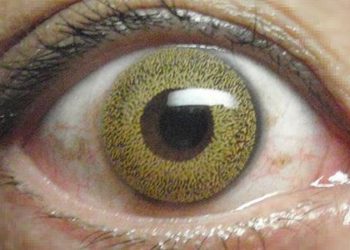Tumor-specific mutant antigens are potential targets for cancer therapy [PreClinical]
1. Following checkpoint blockade therapy (CBT) in a mouse sarcoma model, two dominant tumor-specific mutant antigen (TSMA) targets of CD8+ T cells were identified as key in eliciting the anti-tumor immune response.
2. Vaccination with TSMA-containing vaccines induced tumor rejection and enhanced survival in the mouse sarcoma model.
Evidence Rating Level: 2 (Good)
Study Rundown: Tumors often escape immune system targeting by binding particular T cell receptors (e.g. PD-1), which inhibits the patrolling cells’ anti-tumor activity. One clinical method for augmenting a patient’s anti-tumor immune response is through use of CBT, including anti-PD-1 and anti-CTLA-4 treatment, to block the ability of tumor cells to quiet the T cell anti-tumor activity. It has remained largely unknown what activates the T cells to specifically re-target the cancer cells after CBT, and how these mutations may be used to promote anti-tumor responses.
Pairing a mouse sarcoma model with bioinformatic and genomic approaches, this study identified two dominant TSMAs targeted by CD8+ T cells after CBT. T cells specifically targeting these two mutations were present in the mouse tumors, with their populations peaking right before tumor rejection. Additional studies further linked the mutations and immune-mediated tumor rejection events. Researchers then developed a vaccine containing the mutations in hope it would trigger the anti-tumor immune responses. Indeed, tumor-bearing mice vaccinated with synthetic long peptides that incorporated the mAlg8 and mLama4 mutations demonstrated enhanced survival compared to controls.
This study furthers the understanding of how and why CBT may be effective against certain cancers, with specific mutations mediating the immune response to tumors. It additionally provides a framework for how patient-tailored mutant antigen vaccines may be designed and used to enhance the anti-tumor immune response. Of note, some limitations to this vaccination system may not be apparent in the idealized mouse sarcoma model, which may not capture the full landscape of the human cancer patient.
Click to read the study in Nature
Click to read an accompanying editorial in Nature
Relevant Reading: Predicting immunogenic tumour mutations by combining mass spectrometry and exome sequencing
In-Depth [animal study]: This study investigated the TSMAs responsible for eliciting an immune response following CBT in a mouse model using progressor 3-methylcholanthrene-induced (MCA) sarcoma cell lines (d42m1-T3). The sarcoma was immunologically rejected in mice treated with anti-PD-1 and/or anti-CTLA-4. Using in silico analyses and multiple screening and filtering methods, the antigens responsible for anti-PD-1-mediated rejection of d42m1-T3 tumors were predicted and identified as two major mutated epitopes in asparagine-linked glycosylation 8 (alpha-1,3-glucosyltransferase) (mAlg8) and laminin alpha subunit 4 (mLama4). Tissue-infiltrating lymphocytes (TIL) were isolated from anti-PD-1-treated tumor-bearing mice prior to tumor rejection, and were stained with tetramers loaded with all 66 predicted mutated epitopes. The epitopes that were consistently identified on tetramer-positive CD8+ T cells were mAlg8-H-2Kb and mLama4-H-2Kb.
Multiple experiments confirmed that mAlg8 and mLama4 were the antigens responsible for d42m1-T3 rejection in anti-PD-1 treated mice. These experiments included targeted selected reaction monitoring mass spectrometry identification of both mutant epitopes bound to H-2Kb, tetramer staining to identification of CD8+ T cells specific for these epitopes accumulating near d42m1-T3 tumors prior to rejection in anti-PD-1 treated mice, and evaluation of epitope-induced IFN-γ production.
When mice with d42m1-T3 tumors were vaccinated with mAlg8- and mLama4-mutation-containing synthetic long peptides (SLPs), 9 of 10 survived compared to control groups vaccinated with poly(I:C) only (1/10 survived) or human papilloma virus SLP and poly(I:C) (1/10 survived). Additionally, an investigation of functionally relevant proteins indicated that the functional phenotype of tumor-antigen-specific TIL CD8+ T cells was altered by checkpoint blockade immunotherapy. This included reduced expression of exhaustion markers, LAG-3 and TIM-3, and increased expression of effector molecules like Granzyme B.
More from this author: Genetically engineered lymphocytes inhibit Hepatitis C virus replication in vitro [PreClinical], Rapamycin inhibits intestinal tumor formation and growth [PreClinical]
Image: PD
©2014 2 Minute Medicine, Inc. All rights reserved. No works may be reproduced without expressed written consent from 2 Minute Medicine, Inc. No article should be construed as medical advice and is not intended as such by the authors, editors, staff or by 2 Minute Medicine, Inc.



![2MM: AI Roundup- AI Cancer Test, Smarter Hospitals, Faster Drug Discovery, and Mental Health Tech [May 2nd, 2025]](https://www.2minutemedicine.com/wp-content/uploads/2025/05/Untitled-design-350x250.png)




